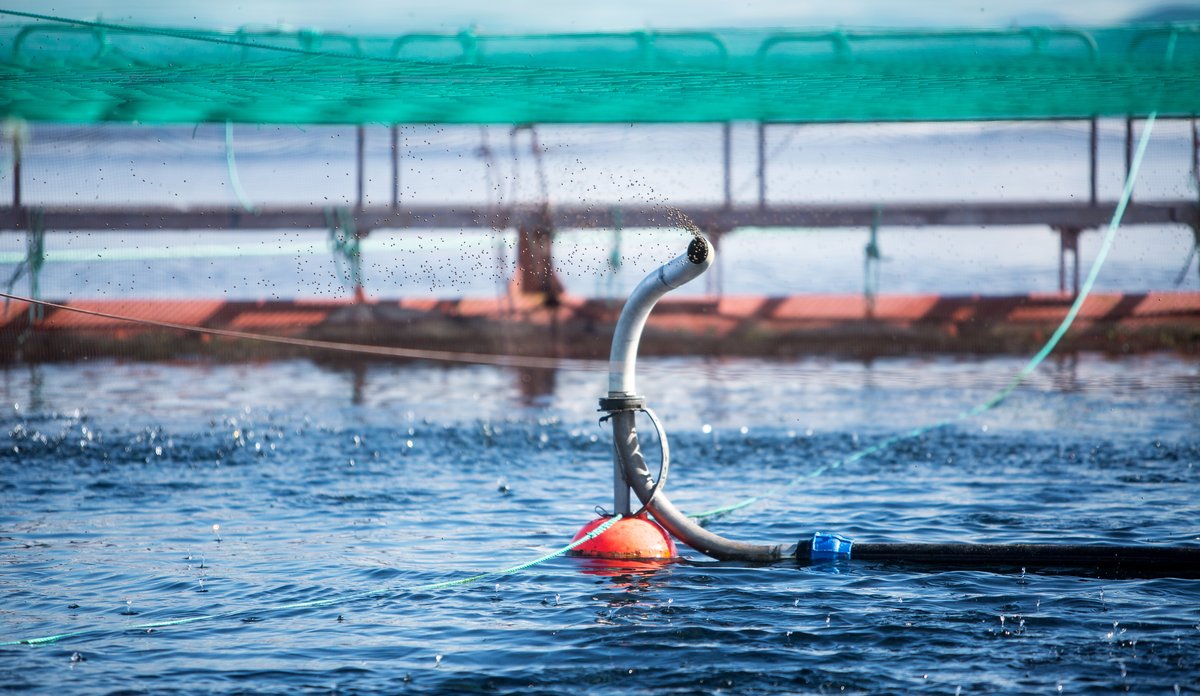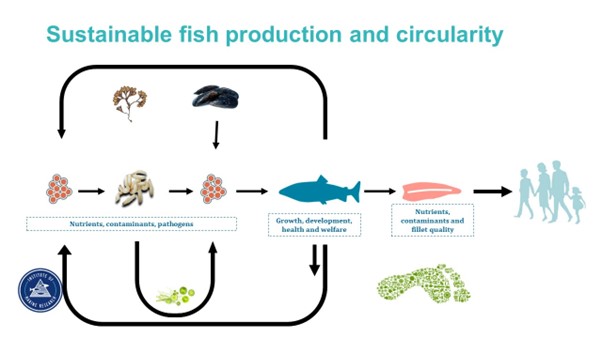Future Aquaculture

The programme provides science-based advice on all farmed species, fish welfare, life-history traits, feed safety, fish nutrition, and sustainable production measures.
Advices are based on the project results within the strategic research areas and the annual surveillance programmes on feed safety and fish welfare. The programme contributes to annual science-based education in the research fields, and supervision of a considerable number of master and PhD students for both national and international universities. The research is published in peer reviewed journals, thereby supporting progress in the scientific fields, future farming strategies and taking part in the public debate.
Core activities
In the research projects, a large amount of experimental data is produced from scientific biological experiments on different developmental stages of algae, filter-feeders (bivalves, tunicates) and fish species related to the aims of the individual projects and strategic areas. Data are also collected, both from chemical analysis at the IMR labs and external databases, in relation to the surveillance programs on feed safety and fish welfare, as a basis for advice in the feed and welfare areas. The IMR Data from surveillance of chemical contaminants are submitted annually to the European Food Safety Authority (EFSA) database.
Research areas
• Low trophic aquaculture
• Culture of marine fish species
• Fish feed and nutrition
• Feed safety
• Animal welfare and health
• Life-history traits and use of genomic tools
Advice
Besides delivering scientific based advices on aquaculture mediated though the IMR advisory committee, annual reports on feed safety and animal welfare are published. Major areas for advice are within fish feed resources and feed, fish growth and welfare, and especially fish welfare in new technological solutions and for sterile fish. Research on feed and feed ingredients and welfare also make the scientific basis for development of laws and regulation of the aquaculture industry. Parts of the research results from the program are implemented in the annual Risk assessment of Norwegian aquaculture and other risk evaluations and in advices in collaboration with the program Environmental impacts of aquaculture.
Future challenges
Aquaculture appears to be the most promising route to realize opportunities and expectations of increasing the share of resources from the oceans to the future global demand for food.
The Norwegian government plan to increase the aquaculture production 5-fold until 2050. This expected rise in aquaculture production will require more species diversity, with more marine fish species and low-trophic organisms. Further growth in fish farming needs to be followed by corresponding increase in the supply of safe, suitable, and sustainable feed ingredients, increasingly based on principles of circularity. Reduction of production losses need to be addressed through focus on improved welfare and health, as well as on robust fish and safe and welfare friendly production systems. Further research is needed for these achievements to be realized, both for the developing industry and public administration.

Published: 10.11.2022